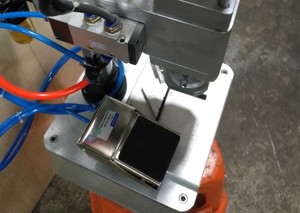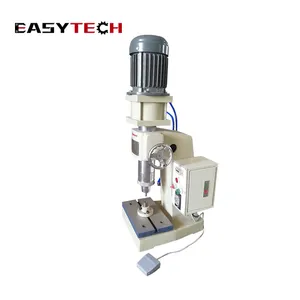Introduction to Automatic Press Machine
An automatic press machine is a versatile and efficient piece of equipment widely used in manufacturing and production processes. It performs repetitive tasks with precision and speed, making it an essential tool for businesses looking to enhance productivity. These machines are designed to automate the pressing, molding, and shaping processes, significantly reducing the time and labor required. The technology behind automatic press machines has evolved, accommodating various industries such as metalworking, textiles, plastics, and more.
Types of Automatic Press Machines
There are several types of automatic press machines, each tailored to specific tasks and materials. Understanding the different categories will help businesses select the ideal machine for their needs:
- Hydraulic Press Machines: Utilize hydraulic power to achieve high pressing force, ideal for metal forming and molding.
- Pneumatic Press Machines: Use compressed air to operate, suitable for lighter materials and faster cycles.
- Mechanical Press Machines: Feature a flywheel mechanism, perfect for repetitive stamping applications.
- Servo Press Machines: Employ servo motors for precise control, allowing for adjustable stroke lengths and speeds, widely used in advanced manufacturing.
Applications of Automatic Press Machines
The versatility of automatic press machines allows them to be utilized across various sectors. Here are some common applications:
- Automotive Industry: Used for stamping, bending, and forming metal parts.
- Electronics Manufacturing: Essential for assembling components and completing circuit boards.
- Textile Industry: Employed for fabric cutting and pressing as part of garment production.
- Plastic Industry: Utilized for molding and forming plastic components with precision.
Advantages of Using Automatic Press Machines
Investing in an automatic press machine offers numerous benefits that can significantly enhance operational efficiency:
- Increased Productivity: Automates repetitive tasks, allowing for higher output without increasing labor costs.
- Consistency and Precision: Delivers uniform results, ensuring quality control in production processes.
- Reduced Labor Costs: Minimizes the need for manual handling, allowing personnel to focus on more complex tasks.
- Enhanced Safety: Many automatic machines come equipped with safety features, reducing the risk of workplace accidents.
- Versatile Applications: Capable of processing a wide range of materials, making them suitable for multiple industries.

































































































































































































